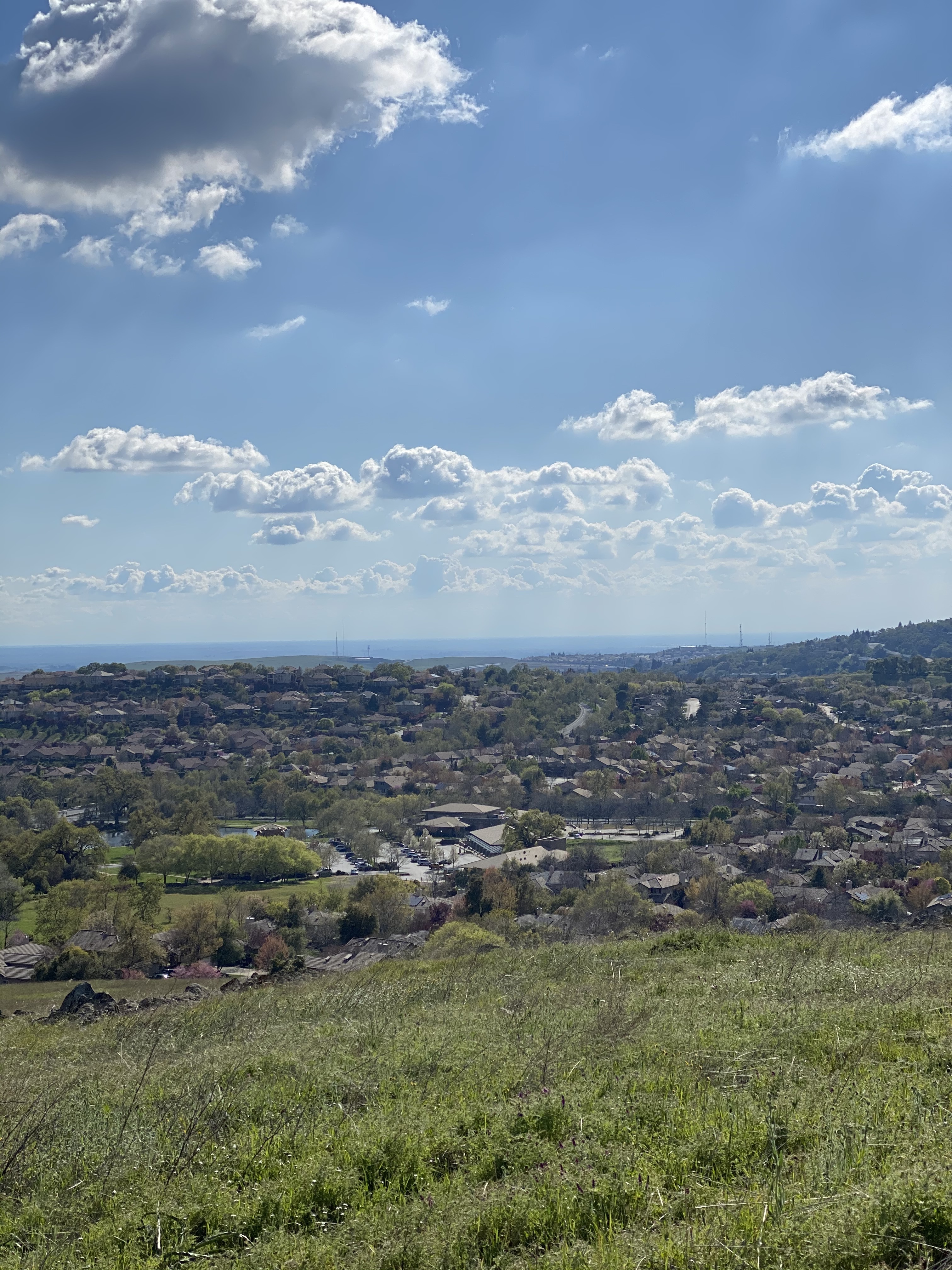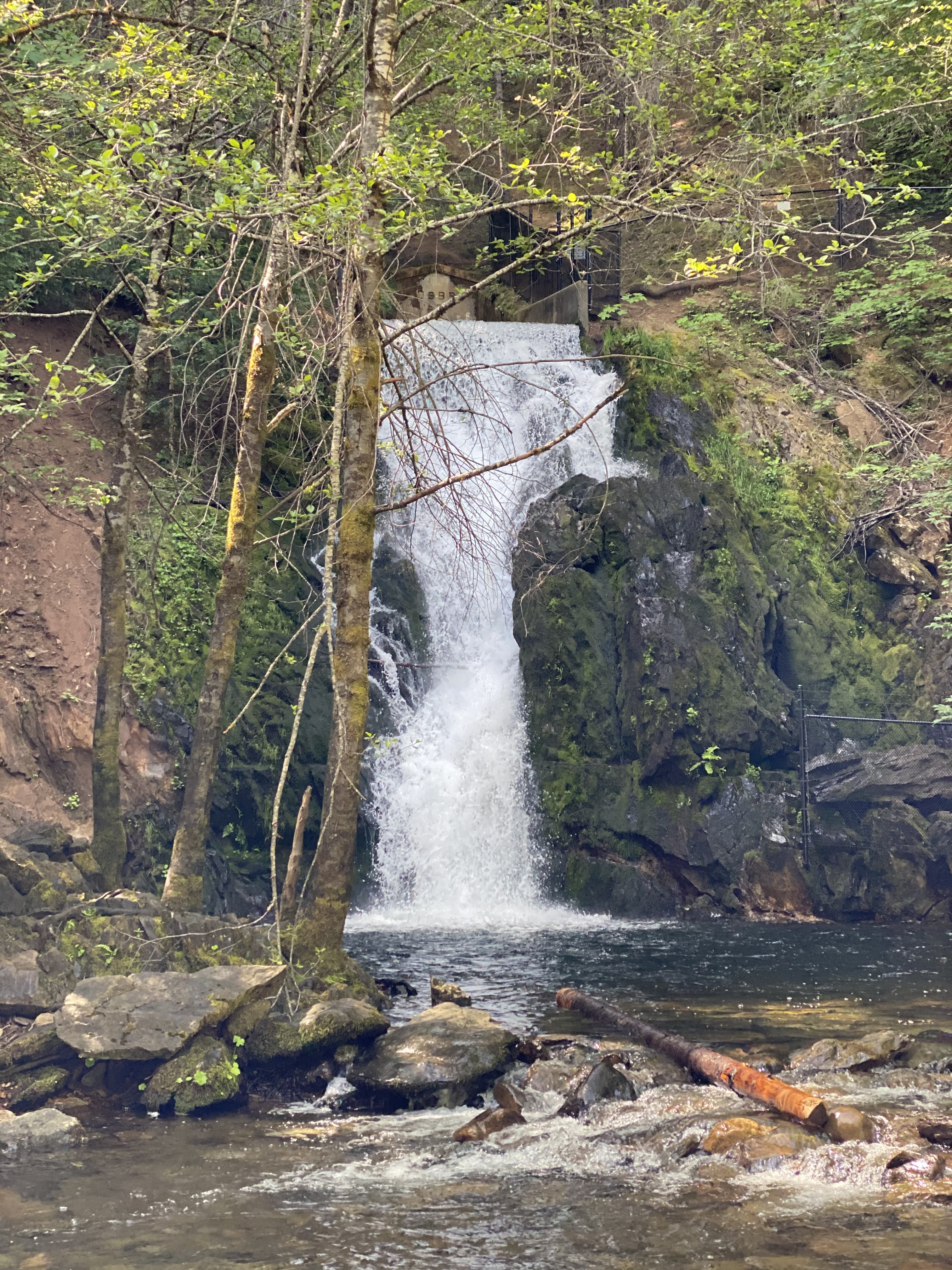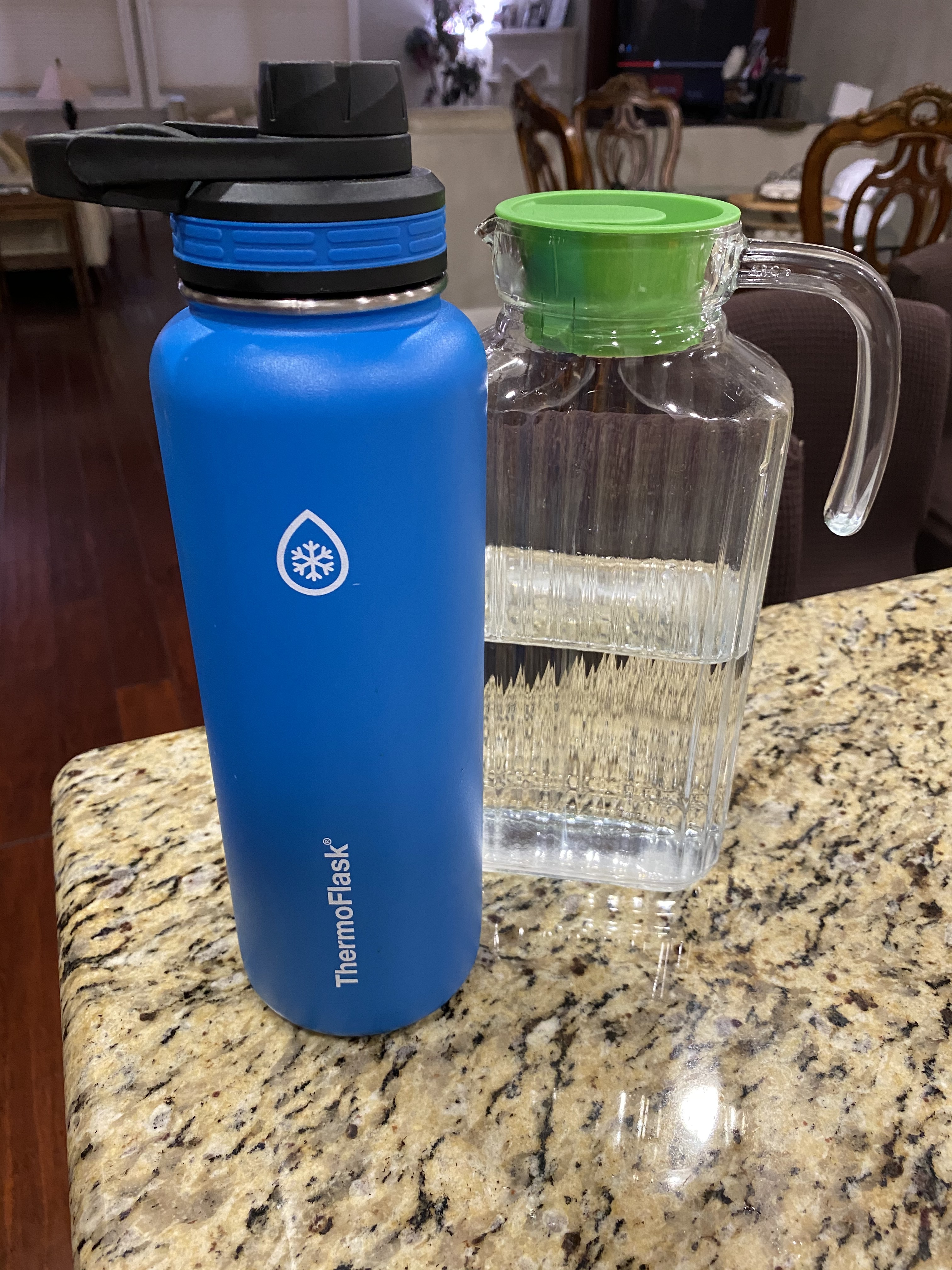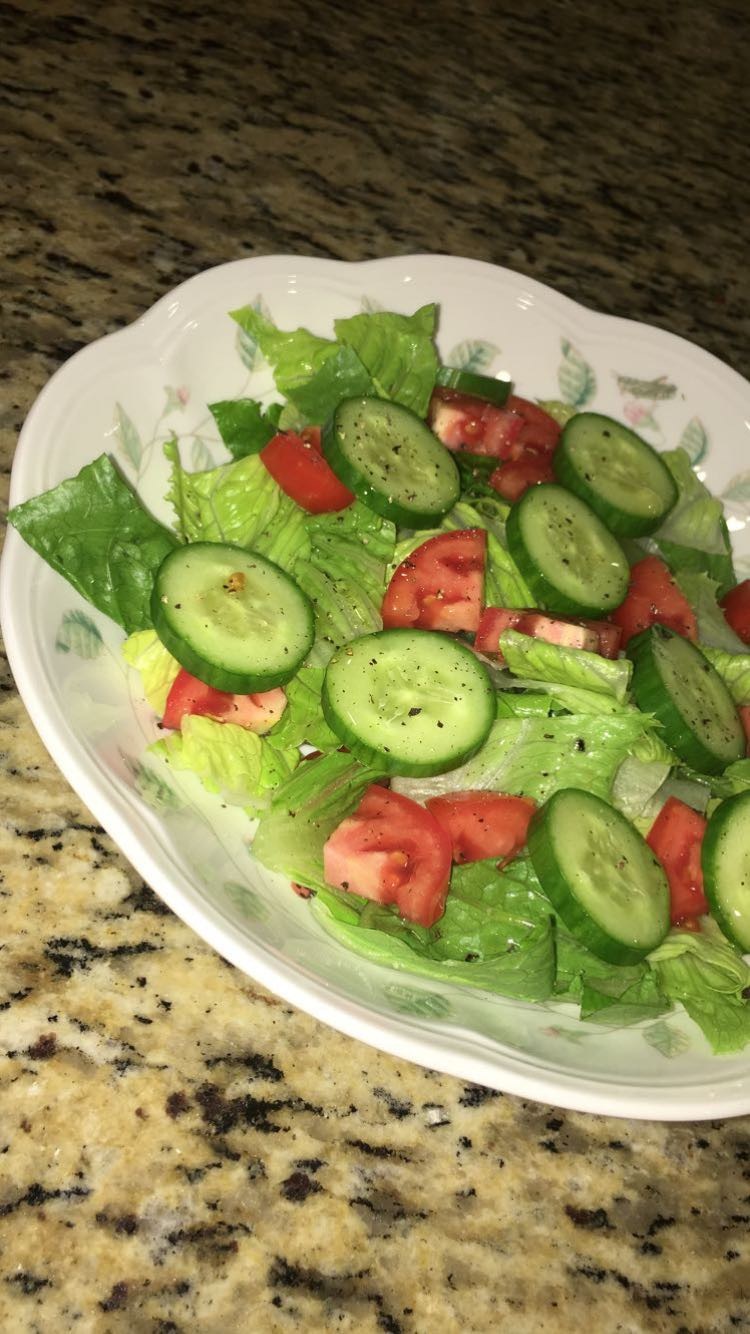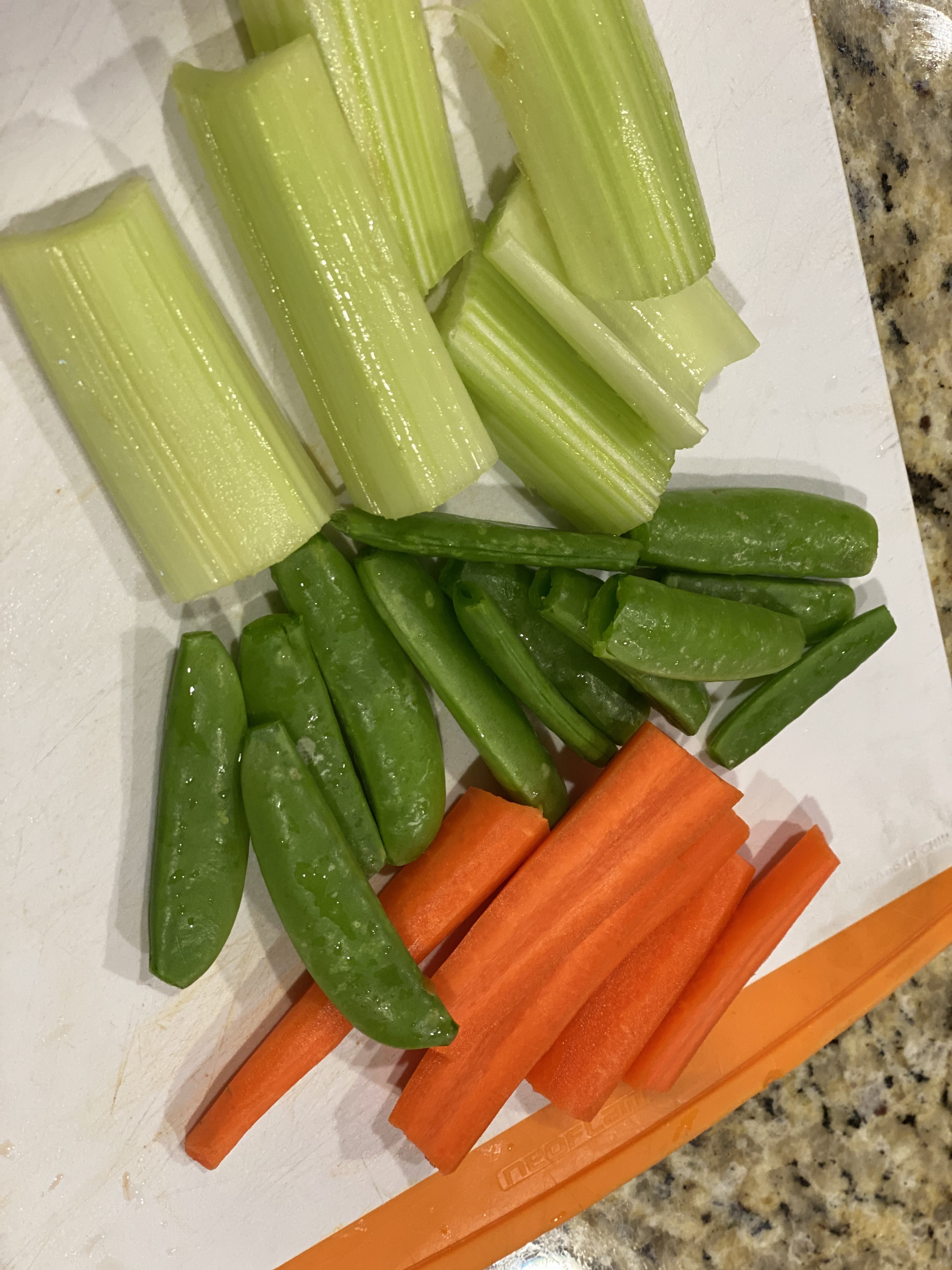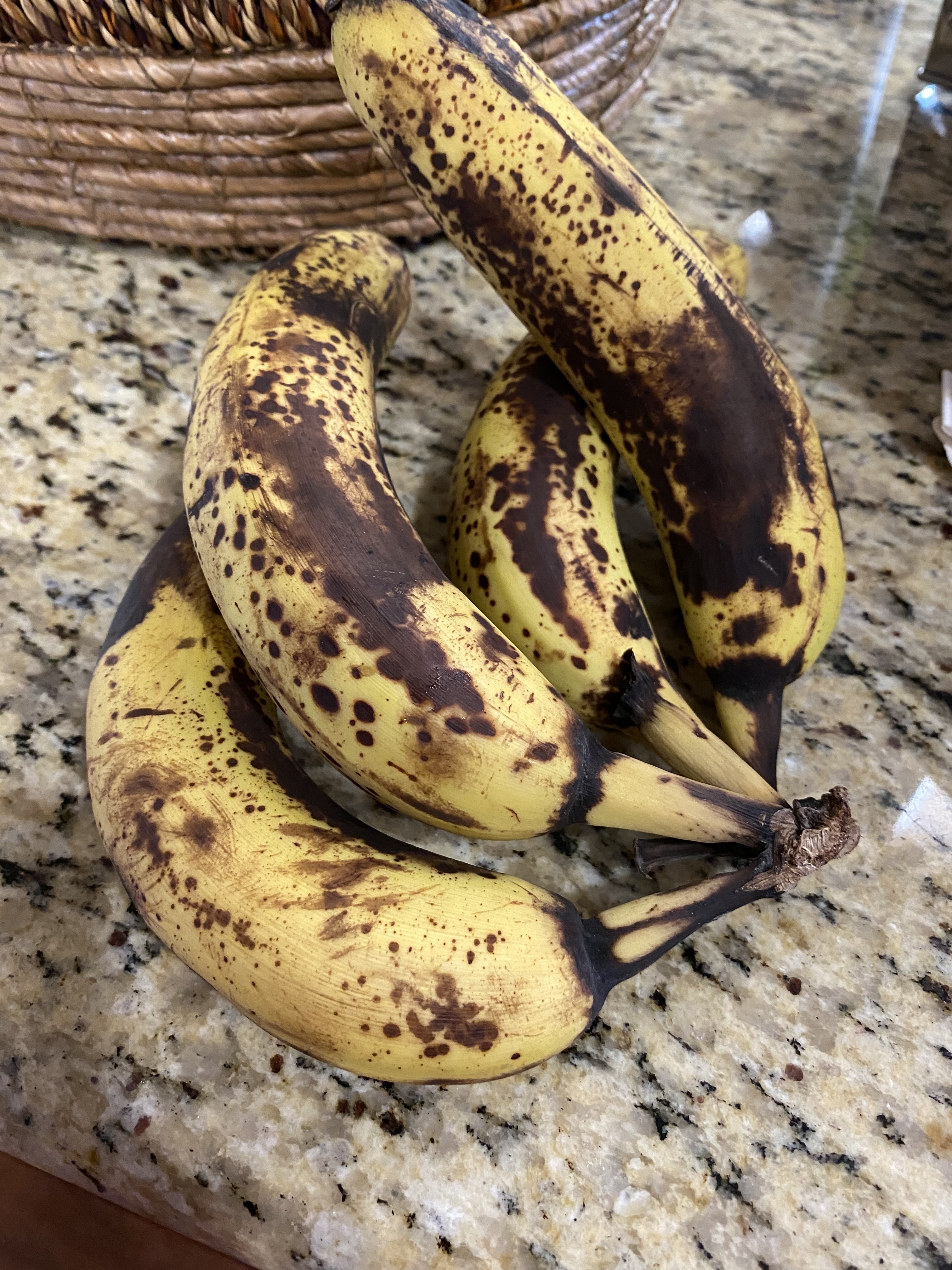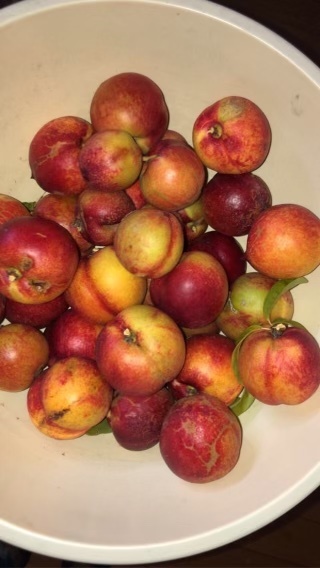MISBAH SHAFI
POINTS TOTAL
- 0 TODAY
- 0 THIS WEEK
- 151 TOTAL
participant impact
-
UP TO90minutesbeing mindful
-
UP TO240minutesspent learning
MISBAH's actions
Action Track: Healing & Renewal
Eat Mindfully
I will eat all of my meals without distractions, e.g., phone, computer, TV, or newspaper.
Industry
Practice the 5 R's
Recycling
I will Practice the "5 Rs" — refuse, reduce, reuse, repurpose, and recycle — to reduce my waste more than I can with just recycling alone.
Buildings
Learn about the Legacy of Redlining
Multiple Solutions
I will spend at least 300 minutes learning about the legacy of redlining and how city planning and environmental justice issues are interconnected.
Action Track: Healing & Renewal
More Fruits And Veggies
I will eat a heart healthy diet by adding 1 cups of fruits and vegetables each day to achieve at least 4 cups per day.
Industry
Reduce Single-Use Disposables
Bioplastics
I will avoid buying and using 2 single-use plastics and instead replace them with durable options.
Transportation
Go for a Daily Walk
Walkable Cities
I will take a walk for 30 minutes each day and take note of the infrastructure that makes walking more or less enjoyable, accessible, and possible.
Health and Education
Learn about the Need for Family Planning
Health and Education
I will spend at least 10 minutes learning more about the need for family planning globally.
Electricity
Calculate the carbon footprint of my household
I will calculate the carbon emissions associated with my household and consider how different lifestyle choices could reduce our carbon footprint and our impact on the environment.
Participant Feed
-
REFLECTION QUESTIONIndustryWhat are some more "R's" you could add to your daily practice to reduce your waste?
 MISBAH SHAFI 6/03/2021 12:27 AMRefuse, Reduce, Reuse, Recycle, Rot are considered the 5 R’s to obtain a zero waste life cycle. Throughout the 9 weeks, I have been working on project drawdown tasks that help me use the 5 R’s to reduce my waste and ecological footprint. Throughout the various tasks, I learned to REFUSE using single-use plastics like plastic water bottles. I learned to REUSE items through jars, tote bags, silicon zip locks, and reusable utensils. I learned to RECYCLE, items like glass bottles, metal, and plastics. However, I can still learn to practice the R’s of reduce and rot in my life. I currently occasionally practice ROT, but I hope to be doing it more frequently. For those of you who are not participating in this task, ROT refers to composting. Occasionally we build up waste from food scraps that can be reintroduced to the ground to provide minerals for soil since almost all non-processed food is biodegradable. This can reduce your waste and act as a vitamin for mother earth. I currently do practice it, but unconsciously I still throw some scraps into the trash and want to be better about using ROT in my daily schedule since I do have space in my backyard to do so. Additionally, I need to start incorporating the R of reducing into my lifestyle. I still splurge on things I don’t need which later are added to my waste. I have started to be a more eco-friendly shopper, however, I still buy things that I may not need. I think lists are overrated sometimes, but I feel like making a list will help me reduce my waste. According to drawdown, if 65% of us started to practice the 5 R’s, our emissions could decrease by 5.5-6 gigatons. That is insane! I know that some of the eco-challenges are harder to do because of time and convenience, but I honestly felt that this one was easy to do by just being cognizant of your actions. You do not need time or money to think about the 3 R’s of refuse, reduce, and recycle. You just need to be cognizant.I hope together, we can think about our action and slowly make changes to practice the 5 Rs and combat climate change.
MISBAH SHAFI 6/03/2021 12:27 AMRefuse, Reduce, Reuse, Recycle, Rot are considered the 5 R’s to obtain a zero waste life cycle. Throughout the 9 weeks, I have been working on project drawdown tasks that help me use the 5 R’s to reduce my waste and ecological footprint. Throughout the various tasks, I learned to REFUSE using single-use plastics like plastic water bottles. I learned to REUSE items through jars, tote bags, silicon zip locks, and reusable utensils. I learned to RECYCLE, items like glass bottles, metal, and plastics. However, I can still learn to practice the R’s of reduce and rot in my life. I currently occasionally practice ROT, but I hope to be doing it more frequently. For those of you who are not participating in this task, ROT refers to composting. Occasionally we build up waste from food scraps that can be reintroduced to the ground to provide minerals for soil since almost all non-processed food is biodegradable. This can reduce your waste and act as a vitamin for mother earth. I currently do practice it, but unconsciously I still throw some scraps into the trash and want to be better about using ROT in my daily schedule since I do have space in my backyard to do so. Additionally, I need to start incorporating the R of reducing into my lifestyle. I still splurge on things I don’t need which later are added to my waste. I have started to be a more eco-friendly shopper, however, I still buy things that I may not need. I think lists are overrated sometimes, but I feel like making a list will help me reduce my waste. According to drawdown, if 65% of us started to practice the 5 R’s, our emissions could decrease by 5.5-6 gigatons. That is insane! I know that some of the eco-challenges are harder to do because of time and convenience, but I honestly felt that this one was easy to do by just being cognizant of your actions. You do not need time or money to think about the 3 R’s of refuse, reduce, and recycle. You just need to be cognizant.I hope together, we can think about our action and slowly make changes to practice the 5 Rs and combat climate change.
-
REFLECTION QUESTIONTransportationWhat have you noticed on your daily walks? What have you enjoyed? What infrastructure changes could make your walks more enjoyable or possible?
 MISBAH SHAFI 6/02/2021 11:08 PMThankfully, my city’s infrastructure would be considered a walkable city. According to drawdown, a walkable city is one with a “density of homes, workplaces, and other spaces, wide, well-lit, tree-lined sidewalks and walkways, safe and direct pedestrian crossings, and connectivity with mass transit.” My city has plenty of sidewalks and pedestrian crossings that allow for easy crossing across major roads. There are trees lined against the sidewalk which makes the experience enjoyable. I can see the difference between Westwood and my community. Firstly, there is less traffic. One thing I do not enjoy in Westwood is the amount of noise pollution and smog from cars. It generally made me not want to go out on walks in the city. In comparison, my neighborhood has multiple trails and little traffic, which allow me to enjoy my walks without pollution or cars. The scenery around my house is serene and makes you relaxed when you walk, unlike Westwood where the traffic makes me stressed out. By having more walkable cities, you can promote healthy living by increasing the amount of physical activity, reducing traffic by having walking options and reducing emissions by 1.4-5.5 gigatons.Although major shops are away from my home, there are also no highways close by. To get to the closest highway you need to drive three miles away from the residential areas. Unfortunately, this increases the need for having a car and reduces the amount of pollution. Currently, my city is trying to build shops like Safeway close by so individuals can walk instead of driving to grocery shops. I hope that they can add more crosswalks and shops to promote buying locally, increasing physical activity, and providing walkable solutions that can reduce carbon emissions.
MISBAH SHAFI 6/02/2021 11:08 PMThankfully, my city’s infrastructure would be considered a walkable city. According to drawdown, a walkable city is one with a “density of homes, workplaces, and other spaces, wide, well-lit, tree-lined sidewalks and walkways, safe and direct pedestrian crossings, and connectivity with mass transit.” My city has plenty of sidewalks and pedestrian crossings that allow for easy crossing across major roads. There are trees lined against the sidewalk which makes the experience enjoyable. I can see the difference between Westwood and my community. Firstly, there is less traffic. One thing I do not enjoy in Westwood is the amount of noise pollution and smog from cars. It generally made me not want to go out on walks in the city. In comparison, my neighborhood has multiple trails and little traffic, which allow me to enjoy my walks without pollution or cars. The scenery around my house is serene and makes you relaxed when you walk, unlike Westwood where the traffic makes me stressed out. By having more walkable cities, you can promote healthy living by increasing the amount of physical activity, reducing traffic by having walking options and reducing emissions by 1.4-5.5 gigatons.Although major shops are away from my home, there are also no highways close by. To get to the closest highway you need to drive three miles away from the residential areas. Unfortunately, this increases the need for having a car and reduces the amount of pollution. Currently, my city is trying to build shops like Safeway close by so individuals can walk instead of driving to grocery shops. I hope that they can add more crosswalks and shops to promote buying locally, increasing physical activity, and providing walkable solutions that can reduce carbon emissions.
Below are a few pictures of trails around my house where I take my walks. -
REFLECTION QUESTIONIndustryWhat single-use items (e.g. straws, coffee cups, vegetable bags, plastic bags) do you regularly use? What could be substituted instead?
 MISBAH SHAFI 6/02/2021 8:23 PMI am guilty of being that one friend that always carried a plastic water bottle around campus. I vividly remember my friend scolding me daily to get a reusable water bottle. I was good about having reusable utensils, zip locks, grocery bags, but for some reason, I could never get over plastic water bottles and giving coffee shops my reusable mugs. Although I recycled, I never really understood why it was a big deal to use a plastic water bottle, but after this class, I realized how much waste I produced by using single-use plastics like water bottles. Slowly this quarter, I began to reduce my use of plastic water bottles. It started as using one single-use plastic water bottle and refilling it a few times. In three weeks, I went from having 10 ish single-use water bottles to 2 single-use water bottles. After those three weeks, I transitioned into filling a glass jug with water and coming downstairs whenever I wanted water. I started using no single-use plastics. However, I realized this was when I was home, but this wasn’t realistic when I went back on campus. Therefore, I finally transitioned to using a water bottle. I bought the Costco version of a hydro-flask and started filling that up and taking it to my room and on my walks. Additionally, over the 9ish weeks, I got my parents to reduce their plastic consumption by not buying plastic bags and grocery stores and transitioning to reusable zip locks. I am really happy that they joined in and started to learn the impact of single-use plastics with me throughout these weeks.Currently, plastics cost us 0.96-3.8 gigatons of emissions. A lot of these single-use plastics that we discard can be substituted by using biodegradable products. I plan to invest in wax wraps and cotton produce bags when I am in LA. Unfortunately, my local stores do not carry those products here. By reducing our use of plastics and investing in biodegradable products we can reduce our emissions by a lot and combat climate change.
MISBAH SHAFI 6/02/2021 8:23 PMI am guilty of being that one friend that always carried a plastic water bottle around campus. I vividly remember my friend scolding me daily to get a reusable water bottle. I was good about having reusable utensils, zip locks, grocery bags, but for some reason, I could never get over plastic water bottles and giving coffee shops my reusable mugs. Although I recycled, I never really understood why it was a big deal to use a plastic water bottle, but after this class, I realized how much waste I produced by using single-use plastics like water bottles. Slowly this quarter, I began to reduce my use of plastic water bottles. It started as using one single-use plastic water bottle and refilling it a few times. In three weeks, I went from having 10 ish single-use water bottles to 2 single-use water bottles. After those three weeks, I transitioned into filling a glass jug with water and coming downstairs whenever I wanted water. I started using no single-use plastics. However, I realized this was when I was home, but this wasn’t realistic when I went back on campus. Therefore, I finally transitioned to using a water bottle. I bought the Costco version of a hydro-flask and started filling that up and taking it to my room and on my walks. Additionally, over the 9ish weeks, I got my parents to reduce their plastic consumption by not buying plastic bags and grocery stores and transitioning to reusable zip locks. I am really happy that they joined in and started to learn the impact of single-use plastics with me throughout these weeks.Currently, plastics cost us 0.96-3.8 gigatons of emissions. A lot of these single-use plastics that we discard can be substituted by using biodegradable products. I plan to invest in wax wraps and cotton produce bags when I am in LA. Unfortunately, my local stores do not carry those products here. By reducing our use of plastics and investing in biodegradable products we can reduce our emissions by a lot and combat climate change.-
 Saatvika Nair 6/02/2021 9:56 PMHi Misbah! My family is actually in a pretty similar boat - we're really good about recycling, but we buy those bulk water bottles from Costco (our local water plant for our town had a lead contamination issue so a lot of residents shy away from using tap water, they either buy water from outside or have special purification filters that they use. After doing more research for this class and reading other people's posts as well, I definitely see why this is SO harmful for the environment, but we also need to keep our safety in mind as well. I used to use a glass water bottle when I went to school pre-pandemic, so I've begun using that. We also now buy our water in bulk (the large bottles with a tap) instead of the small one-time use bottles. It's definitely empowering and a nice change to see - just making that small change significantly decreases the amount of plastic my family uses each week. I'm glad that like your parents, mine also joined in: we use glassware to store items and are now shying away from Ziplocs and plastic containers! Hopefully over the summer I can find more creative and new ways to reduce our plastic consumption as well!
Saatvika Nair 6/02/2021 9:56 PMHi Misbah! My family is actually in a pretty similar boat - we're really good about recycling, but we buy those bulk water bottles from Costco (our local water plant for our town had a lead contamination issue so a lot of residents shy away from using tap water, they either buy water from outside or have special purification filters that they use. After doing more research for this class and reading other people's posts as well, I definitely see why this is SO harmful for the environment, but we also need to keep our safety in mind as well. I used to use a glass water bottle when I went to school pre-pandemic, so I've begun using that. We also now buy our water in bulk (the large bottles with a tap) instead of the small one-time use bottles. It's definitely empowering and a nice change to see - just making that small change significantly decreases the amount of plastic my family uses each week. I'm glad that like your parents, mine also joined in: we use glassware to store items and are now shying away from Ziplocs and plastic containers! Hopefully over the summer I can find more creative and new ways to reduce our plastic consumption as well!
-
-
REFLECTION QUESTIONAction Track: Healing & RenewalHow does eating more fruits and vegetables and less meat positively affect yourself, other people, and our planet?
 MISBAH SHAFI 6/02/2021 7:24 PMSince COVID-19, I have been consuming more veggies and fruits in my diet. Before COVID, I use to snack on processed foods like chips and cookies, but it took a toll. I always felt sluggish and tired when eating processed food. I decided to switch my diet to see if it improved my health. I began to snack solely on nuts, cheese, dried fruit (dried nectarines, figs, and apricots are amazing), fresh fruit, and veggies. It was honestly the best change I made. Additionally, the sweetness of the fruit made me cut off sugar completely. The only time I eat sugar is if I want to bake or am at someone’s house, but even then, I would rather use a banana in my baking or take a bowl of fruit rather than a slice of cake. When I first started this, my parents called me a health nut, but I just started disliking the taste of sugar. Slowly, my parents started joining me and added more fruits into our diet. It led to my family buying and growing fruit locally, which indirectly reduced my household’s carbon footprint. Other than that, I began to eat more veggies in my meals and snacks. For instance, I enjoy snacking on carrots, celery, broccoli, and homegrown sugar snap peas, cherry tomatoes. Now, whenever I eat anything, I always have some type of veggie on my plate. I think by increasing the number of veggies I eat, I also lowered my meat consumption. Before, my family would eat meat and seafood frequently, but recently we started cooking no meat dishes occasionally. Without thinking about our health, this improved all of our wellbeings. We all feel like our meals are less heavy on our stomachs which almost feels like our body and mind are refreshed. We all have a lot more energy since we made these changes. By eating more veggies and fruit in my diet, I have felt more productive and less sluggish. According to drawdown, maintaining a plant-rich diet reduce carbon emissions by not consuming meat and reduces your risk for chronic disease. One fact I found interesting was, “if 50-75 percent of the world’s population restricts their diet to a healthy average 2,250 calories per day and reduces meat consumption overall, we estimate at least 43-68 gigatons of emissions could be avoided from dietary change alone.” That significantly decreases the number of emissions by a simple change in diet. I hope that we all can find ways to include more veggies and fruits in our diets to better our health and stop climate change.P.S. To me the best way to cook veggies is by adding a little bit of olive oil, salt, and pepper.^Best bananas to use in baking! Do not throw away! The peel can later be used in compost to supply micronutrients like magnesium and sulfur.
MISBAH SHAFI 6/02/2021 7:24 PMSince COVID-19, I have been consuming more veggies and fruits in my diet. Before COVID, I use to snack on processed foods like chips and cookies, but it took a toll. I always felt sluggish and tired when eating processed food. I decided to switch my diet to see if it improved my health. I began to snack solely on nuts, cheese, dried fruit (dried nectarines, figs, and apricots are amazing), fresh fruit, and veggies. It was honestly the best change I made. Additionally, the sweetness of the fruit made me cut off sugar completely. The only time I eat sugar is if I want to bake or am at someone’s house, but even then, I would rather use a banana in my baking or take a bowl of fruit rather than a slice of cake. When I first started this, my parents called me a health nut, but I just started disliking the taste of sugar. Slowly, my parents started joining me and added more fruits into our diet. It led to my family buying and growing fruit locally, which indirectly reduced my household’s carbon footprint. Other than that, I began to eat more veggies in my meals and snacks. For instance, I enjoy snacking on carrots, celery, broccoli, and homegrown sugar snap peas, cherry tomatoes. Now, whenever I eat anything, I always have some type of veggie on my plate. I think by increasing the number of veggies I eat, I also lowered my meat consumption. Before, my family would eat meat and seafood frequently, but recently we started cooking no meat dishes occasionally. Without thinking about our health, this improved all of our wellbeings. We all feel like our meals are less heavy on our stomachs which almost feels like our body and mind are refreshed. We all have a lot more energy since we made these changes. By eating more veggies and fruit in my diet, I have felt more productive and less sluggish. According to drawdown, maintaining a plant-rich diet reduce carbon emissions by not consuming meat and reduces your risk for chronic disease. One fact I found interesting was, “if 50-75 percent of the world’s population restricts their diet to a healthy average 2,250 calories per day and reduces meat consumption overall, we estimate at least 43-68 gigatons of emissions could be avoided from dietary change alone.” That significantly decreases the number of emissions by a simple change in diet. I hope that we all can find ways to include more veggies and fruits in our diets to better our health and stop climate change.P.S. To me the best way to cook veggies is by adding a little bit of olive oil, salt, and pepper.^Best bananas to use in baking! Do not throw away! The peel can later be used in compost to supply micronutrients like magnesium and sulfur.-
 Saatvika Nair 6/02/2021 10:04 PMHi Misbah! Thank you so much for sharing - I've honestly been doing the same since the pandemic. The meat & fish that I used to enjoy before the pandemic now feels excessive and increasingly fatty for some reason when I eat them, so I've been eating a lot more fruits and veggies. My favorite fruit to eat in the winter is definitely pomegranates, but I've also been eating an apple and a pear daily as a snack instead of chips or cookies. My breakfast is now a fruit smoothie which is actually really satisfying and nutritious - it has apricots, strawberries, dates, bananas, oats, hemp milk, sunflower seeds, pumpkin seeds, and vanilla essence in it! My mom has also joined in, so now we drink our breakfast smoothie together. We also have apple trees in our backyard that give us apples in the fall, and blueberry and strawberry plants that bear fruit in the summers. That added satisfaction of eating something you grew by hand also makes eating healthy pretty rewarding! However, I do wonder how people living in smaller spaces (like in busy cities like New York, without a backyard) are able to grow their own produce. We should definitely encourage more community gardens within our communities as well, so everyone gets a chance to grow their own food.
Saatvika Nair 6/02/2021 10:04 PMHi Misbah! Thank you so much for sharing - I've honestly been doing the same since the pandemic. The meat & fish that I used to enjoy before the pandemic now feels excessive and increasingly fatty for some reason when I eat them, so I've been eating a lot more fruits and veggies. My favorite fruit to eat in the winter is definitely pomegranates, but I've also been eating an apple and a pear daily as a snack instead of chips or cookies. My breakfast is now a fruit smoothie which is actually really satisfying and nutritious - it has apricots, strawberries, dates, bananas, oats, hemp milk, sunflower seeds, pumpkin seeds, and vanilla essence in it! My mom has also joined in, so now we drink our breakfast smoothie together. We also have apple trees in our backyard that give us apples in the fall, and blueberry and strawberry plants that bear fruit in the summers. That added satisfaction of eating something you grew by hand also makes eating healthy pretty rewarding! However, I do wonder how people living in smaller spaces (like in busy cities like New York, without a backyard) are able to grow their own produce. We should definitely encourage more community gardens within our communities as well, so everyone gets a chance to grow their own food.
I'm excited to continue living this way once the pandemic ends and I move on campus as well, I've already kept my eye on the local farmer's market and have found some recipes that I'm eager to try over the summer! I found the statistic you shared about our carbon emissions and our healthy diet also particularly inspiring - I honestly can't find any disadvantages to eating healthy! Picture: strawberries from our garden!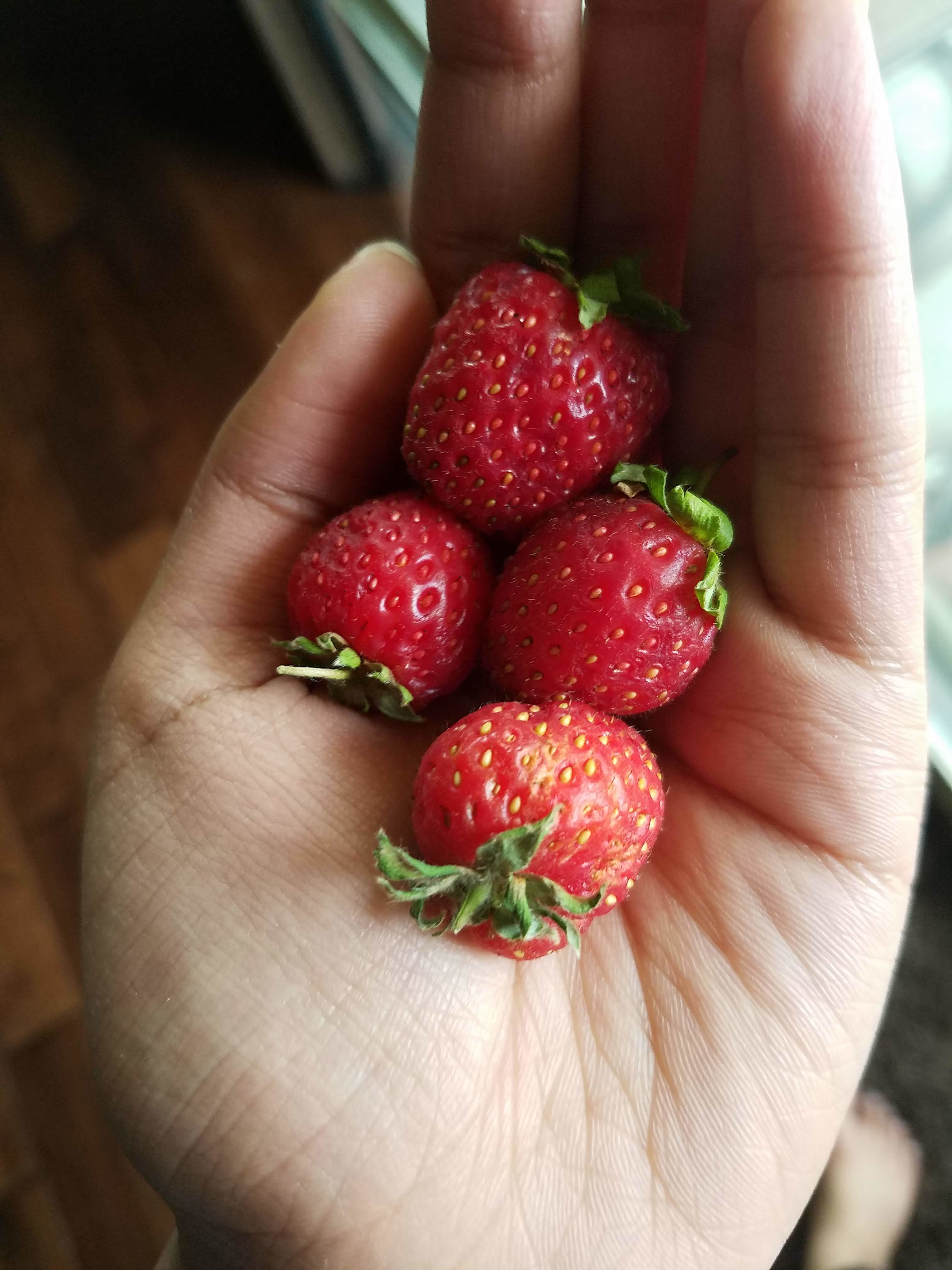
-
 Fennie Huynh 6/02/2021 9:38 PMHi Misbah! Thanks for sharing your experience because I relate a lot to your post! Eating enough fruits and veggies has always been pushed on to me both at home and school but I never took it upon myself or went out of my way to consume it mindfully. I ran cross country throughout high school and my coaches had always pushed us to eat right so in a sense, I felt like I ate healthy for the sport and not for my own well-being. But this changed this quarter with the EcoChallenges because I’m not currently doing a competitive sport and still made an effort to get in enough fruits and vegetables. I also think a part of it is because my mom has also made an effort to work on her consumption, due to the advice of her doctor, but she has made many more trips to the flea market for fresh fruits. I currently live in an apartment and am not able to have the freedom and space to grow but in the future, I definitely plan to get into gardening at my house! I also want to add that my mom and family eat vegetarian meals a couple of days out of each month for religious reasons but I’m also glad this plays a part in reducing our carbon emissions. I am glad this EcoChallenge has brought positive changes for you on a personal health level but also towards doing our part to be more sustainable. Looking forward to next year, I plan to live with a housemate who has been vegetarian since 6th grade and I hope to make an effort to supplement more greens into my diet instead of meat. I am also excited because I will have more freedom over what I consume and make my own grocery trips. Thank you for also sharing the statistic about how much emissions we could reduce. This does make me think about how some parts of the world do not have the same access to foods and are experiencing food insecurities. I think this is a complex issue that involves policies for change but I also do hope that more people can have access to nutritious foods. Also from your first image, I'm going to have to try brussel sprouts the way you mentioned! I also just have two pictures of fruits that I wanted to post, the nectarines are from my grandma's backyard and I'm just happy to eat the bowl of strawberries :)
Fennie Huynh 6/02/2021 9:38 PMHi Misbah! Thanks for sharing your experience because I relate a lot to your post! Eating enough fruits and veggies has always been pushed on to me both at home and school but I never took it upon myself or went out of my way to consume it mindfully. I ran cross country throughout high school and my coaches had always pushed us to eat right so in a sense, I felt like I ate healthy for the sport and not for my own well-being. But this changed this quarter with the EcoChallenges because I’m not currently doing a competitive sport and still made an effort to get in enough fruits and vegetables. I also think a part of it is because my mom has also made an effort to work on her consumption, due to the advice of her doctor, but she has made many more trips to the flea market for fresh fruits. I currently live in an apartment and am not able to have the freedom and space to grow but in the future, I definitely plan to get into gardening at my house! I also want to add that my mom and family eat vegetarian meals a couple of days out of each month for religious reasons but I’m also glad this plays a part in reducing our carbon emissions. I am glad this EcoChallenge has brought positive changes for you on a personal health level but also towards doing our part to be more sustainable. Looking forward to next year, I plan to live with a housemate who has been vegetarian since 6th grade and I hope to make an effort to supplement more greens into my diet instead of meat. I am also excited because I will have more freedom over what I consume and make my own grocery trips. Thank you for also sharing the statistic about how much emissions we could reduce. This does make me think about how some parts of the world do not have the same access to foods and are experiencing food insecurities. I think this is a complex issue that involves policies for change but I also do hope that more people can have access to nutritious foods. Also from your first image, I'm going to have to try brussel sprouts the way you mentioned! I also just have two pictures of fruits that I wanted to post, the nectarines are from my grandma's backyard and I'm just happy to eat the bowl of strawberries :)
-
-
REFLECTION QUESTIONHealth and EducationWhat did you learn about the need for family planning? How do the needs of different people in different places compare to each other?
 MISBAH SHAFI 6/01/2021 11:00 PMGender equity plays an important role in combating climate change. Throughout history, we have learned that women played important roles in harvesting food, collect produce, and raising families, but ofter were given few rights or privileges. According to Wilkinson, 60% of food farmed are from low-income, women farmers who farm on land as small as 5 acres. The undeniable truth is that to this day, men are often the main owners of land instead of women, which directly affects our climate. Often deforestation happens to make more room to harvest which leads to increased emissions. However, if women owned more land, they would be able to increase crop yield by 20-30% and reduce the need for more land. Although this seems like a simple change, this requires giving women the resources and rights to land, which requires planning in early adolescents. By educating and supporting women at a young age, you can empower them and allow them to flourish and promote change. Additionally, in third-world countries, women are often married at a young age and get pregnant due to a lack of resources and choice. Often socioeconomic factors pressure young girls to marry early and prevent them from pursuing secondary education and leads them to have little choice in the lifestyle they live. According to Drawdown, an “estimated 218 million women who want to avoid pregnancy are not using safe and effective family planning methods, for reasons ranging from lack of access to information or services to lack of support from their partners or communities.” By women not having the resources and choice, these women often are not able to pursue higher education, are married young, and have larger families, which affects their health and lifestyle. There is an increase in population that leads to increased emissions. According to Wilkerson, having one billion fewer people equates to reducing 120 billion tons of emissions. This is the narrative for low-income communities, however, even in the US, 45% of pregnancies are unplanned due to lack of access to contraceptives and choice. For example, Colorado has halved the number of pregnancies by offering long-term, reversible contraceptives. This allows women to have access to resources and have a choice to prevent pregnancies which can lead to reduced emissions. Simply by removing the taboo of sex education, providing access to resources, giving women rights, and empowering women emissions can be decreased a promote a healthy lifestyle for women in the future.Women empowerment is something close to my heart since my parents immigrated from a third-world country where the stories I read throughout the few weeks are true. I have often heard about women getting married as young as sixteen and having ten children. I can’t speak to the experience of those women who married young, but I can state from my own family that women often are not given a choice due to cultural and socioeconomic pressures that lead to young marriages and prevent women from having the opportunity to pursue education. I am extremely thankful for all my family’s efforts to let me live the life I have and give me choice. I hope that I can continue to educate myself more about family planning and continue to be a part of women’s empowerment in my cultural community.
MISBAH SHAFI 6/01/2021 11:00 PMGender equity plays an important role in combating climate change. Throughout history, we have learned that women played important roles in harvesting food, collect produce, and raising families, but ofter were given few rights or privileges. According to Wilkinson, 60% of food farmed are from low-income, women farmers who farm on land as small as 5 acres. The undeniable truth is that to this day, men are often the main owners of land instead of women, which directly affects our climate. Often deforestation happens to make more room to harvest which leads to increased emissions. However, if women owned more land, they would be able to increase crop yield by 20-30% and reduce the need for more land. Although this seems like a simple change, this requires giving women the resources and rights to land, which requires planning in early adolescents. By educating and supporting women at a young age, you can empower them and allow them to flourish and promote change. Additionally, in third-world countries, women are often married at a young age and get pregnant due to a lack of resources and choice. Often socioeconomic factors pressure young girls to marry early and prevent them from pursuing secondary education and leads them to have little choice in the lifestyle they live. According to Drawdown, an “estimated 218 million women who want to avoid pregnancy are not using safe and effective family planning methods, for reasons ranging from lack of access to information or services to lack of support from their partners or communities.” By women not having the resources and choice, these women often are not able to pursue higher education, are married young, and have larger families, which affects their health and lifestyle. There is an increase in population that leads to increased emissions. According to Wilkerson, having one billion fewer people equates to reducing 120 billion tons of emissions. This is the narrative for low-income communities, however, even in the US, 45% of pregnancies are unplanned due to lack of access to contraceptives and choice. For example, Colorado has halved the number of pregnancies by offering long-term, reversible contraceptives. This allows women to have access to resources and have a choice to prevent pregnancies which can lead to reduced emissions. Simply by removing the taboo of sex education, providing access to resources, giving women rights, and empowering women emissions can be decreased a promote a healthy lifestyle for women in the future.Women empowerment is something close to my heart since my parents immigrated from a third-world country where the stories I read throughout the few weeks are true. I have often heard about women getting married as young as sixteen and having ten children. I can’t speak to the experience of those women who married young, but I can state from my own family that women often are not given a choice due to cultural and socioeconomic pressures that lead to young marriages and prevent women from having the opportunity to pursue education. I am extremely thankful for all my family’s efforts to let me live the life I have and give me choice. I hope that I can continue to educate myself more about family planning and continue to be a part of women’s empowerment in my cultural community.-
 CHAISE PUCEK 6/02/2021 2:21 PMHi Misbah!
CHAISE PUCEK 6/02/2021 2:21 PMHi Misbah!
I think you have made some great points in your response. Gender inequality is something that we will have to continue to address throughout our lifetimes, Last year, I took a course on Women and Power in the Ancient World. It was mentioned how in every single population in the world, a patriarchal society has been independently established, which is quite astounding to think about. One thing we discussed was that in hunter-gatherer times, women provided something like 80-90% of the sustenance for their communities. How then, were men deemed the providers? It was because the men were the hunters, and they provided meat when they could. Meat was a scarce resource, and the men controlled it. Whoever controls the scarce resources has control over the population. I think this is still relevant today, and is super interesting to think about. There are so many reasons for patriarchal communities forming, and I encourage everyone to look into it!
As you mentioned, women are the bearers of children, and in different cultures, women are expected to fill different roles. Family planning is considered more important in some areas than others. I think as the climate emergency progresses, it is going to be more relevant everywhere. How ethical is it for people to have children during this time?
-
-
REFLECTION QUESTIONAction Track: Healing & RenewalMindful eating is healthier for us than eating with distractions. How does your eating experience differ when practicing mindfulness?
 MISBAH SHAFI 6/01/2021 8:41 PMAs a student, like many of my peers, I am always multitasking when I eat, whether it be watching a video for class, taking notes, scrolling on my phone, or just watching Netflix. When I began mindful eating 7 weeks ago, I was always tempted to check my phone to look at Instagram or check my emails. I had to make a conscious effort to leave my phone in my room and not bring it to the dinner table to avoid the temptations. After implementing this change, I found eating to be a dull experience and did not enjoy it at all, however slowly I began to appreciate the experience. It took me about a week to begin enjoying my new eating experience. I slowly began enjoying just the time of silence to look out the window. I began wanting to get out of the house and going on walks daily. Additionally, I enjoyed the taste of my meal more, which was something I enjoyed the most. As an avid cook, it allowed me to appreciate the texture, taste, and smell of my food instead of rushing. I was no longer worried about when I would begin working again, but instead, I allotted time to enjoy my meal and it significantly decreased my stress and productivity.Additionally, I used to have health problems specifically related to my eating habits. Whenever I ate, I would have adverse side effects. Four weeks into mindful eating, the incident rate decreased significantly. Instead of feeling heavy after eating, I felt nutrients instead of gross post-meal. Martha Green states,“‘Taking time to appreciate these aspects of food while eating a snack or meal can help you better understand when you are full. It will also help you to eat slower which will aid in digestion.’” When I ate mindfully, I knew when I was full and was not overeating. Lastly, I noticed I was putting less food back into my fridge since I was only putting as much as I was eating on my plate. There was less food waste and I was lowering my carbon footprint. I was happy to see that by a small change in lifestyle, I was making small changes that improve the environment around me.
MISBAH SHAFI 6/01/2021 8:41 PMAs a student, like many of my peers, I am always multitasking when I eat, whether it be watching a video for class, taking notes, scrolling on my phone, or just watching Netflix. When I began mindful eating 7 weeks ago, I was always tempted to check my phone to look at Instagram or check my emails. I had to make a conscious effort to leave my phone in my room and not bring it to the dinner table to avoid the temptations. After implementing this change, I found eating to be a dull experience and did not enjoy it at all, however slowly I began to appreciate the experience. It took me about a week to begin enjoying my new eating experience. I slowly began enjoying just the time of silence to look out the window. I began wanting to get out of the house and going on walks daily. Additionally, I enjoyed the taste of my meal more, which was something I enjoyed the most. As an avid cook, it allowed me to appreciate the texture, taste, and smell of my food instead of rushing. I was no longer worried about when I would begin working again, but instead, I allotted time to enjoy my meal and it significantly decreased my stress and productivity.Additionally, I used to have health problems specifically related to my eating habits. Whenever I ate, I would have adverse side effects. Four weeks into mindful eating, the incident rate decreased significantly. Instead of feeling heavy after eating, I felt nutrients instead of gross post-meal. Martha Green states,“‘Taking time to appreciate these aspects of food while eating a snack or meal can help you better understand when you are full. It will also help you to eat slower which will aid in digestion.’” When I ate mindfully, I knew when I was full and was not overeating. Lastly, I noticed I was putting less food back into my fridge since I was only putting as much as I was eating on my plate. There was less food waste and I was lowering my carbon footprint. I was happy to see that by a small change in lifestyle, I was making small changes that improve the environment around me.
PS. I left my phone upstairs, so I have no picture for this post.
-
 Suraj Doshi 6/01/2021 9:00 PMHi Misbah,
Suraj Doshi 6/01/2021 9:00 PMHi Misbah,
I enjoyed reading your response to this prompt. You and I led similar lifestyles before taking on this challenge. I too would often do some sort of work, whether it be watching lecture for class, checking and writing emails, or just playing games or watching TV. I think it is really interesting how you mentioned that you had to sort of condition yourself to leave your phone in a different room and did not necessarily enjoy the experience at first. I also did the same thing as I would leave my phone upstairs in my room before I went down to eat, just so that I could forget about it completely and would not have the urge to touch if it buzzed or rang. I thought the experience was very interesting and allowed me to also enjoy my meal a lot more than before. It also allowed me to have conversations with some of my family members if they ate at the same time I sat down for my meal which was nice. I viewed my sort of ‘revitalized’ meal times a time to just decompress and calm down from the hectic nature of life, especially right now. During midterm season when everything seems to be chaotic I found that I could just take my lunch outside and relax and watch the birds and planes pass by overhead. It was nice to actually be out in the sun after being stuck inside staring at a screen 24/7.
It was super interesting learning how mindful eating also helped you decrease adverse post-meal effects. I think this goes to show that mindful eating has additional benefits beyond just enjoying the food that is placed in front of you. With distractions, I also have found that I continue to eat until I feel very uncomfortable just because I do not really realize what I am doing, and just go with the motion. When I practiced mindful eating, I never found this to be the case.
-
